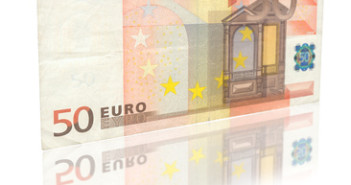EUR/USD continues to have a quiet week, as the pair trades in the high-1.36 range in the European session. The euro shrugged off disappointing numbers out of the Eurozone on Thursday, as German, French and Eurozone Manufacturing PMIs all softened in April and fell short of expectations. Services PMIs fared better, as these indicators improved in Germany and the Eurozone, but the French numbers weakened. In the US, there are two key releases on the schedule – Unemployment Claims and Existing Home Sales.
- EUR/USD edged lower in the Asian session, but has recovered in European trading, as the pair trades around the 1.3680 line.
Current range: 1.37 to 1.3740.
Further levels in both directions:

- Below: 1.3650, 1.3560, 1.3515 and 1.3450
- Above: 1.37, 1.3740, 1.3785, 1.3830, 1.3865, 1.3905, 1.3964, 1.40, 1.4055 and 1.4105
- 1.3650 is providing weak support. 13560 is stronger.Â
- The round number of 1.3700 is a weak resistance line.
EUR/USD Fundamentals
- 7:00 French Flash Manufacturing PMI. Estimate 51.1, actual 49.3 points.
- 7:00 French Flash Services PMI. Estimate 50.3, actual 49.2 points.
- 7:30Â German Flash Manufacturing PMI. Estimate 54.0, actual 52.9 points.
- 7:30 German Flash Services PMI. Estimate 54.8, actual 56.4 points.
- 8:00Â Eurozone Flash Manufacturing PMI. Estimate 53.2, actual 52.5 points.
- 8:00 Eurozone Flash Services PMI. Estimate 53.0, Actual 53.5 points.
- 8:39 Spanish 10-year Bond Auction. Actual 2.97%.
- Day 1 – European Parliamentary Elections.
- 12:30 US Unemployment Claims. Estimate 312K.
- 13:45 US Flash Manufacturing PMI. Estimate 55.6 points.
- 14:00 US Existing Home Sales. Estimate 4.71M.
- 14:00 US CB Leading Index. Estimate 0.4%.
- 14:30 US Natural Gas Storage. Estimate 104B.
*All times are GMT
For more events and lines, see the EUR/USD EUR/USD EUR/USD EUR/USD EUR/USD .
EUR/USD Sentiment
- Cautious tone from Fed: There were no surprises from the  Federal Reserve minutes on Wednesday, and there was no dramatic response from the markets. In the minutes, policymakers discussed an exit strategy from its QE stimulus program, which is set to terminate at the end of 2014. This will likely mean an increase in interest rates once QE is over and done with, but the minutes didn’t provide a timetable as to when rates might go up and by how much. Low inflation levels means there is less pressure on the Fed to raise rates next year, but the economic conditions could change in the meantime. The Federal Reserve remains comfortable with its accommodative stance, and will want to see stronger growth and employment numbers before making changes to monetary policy, such as raising rates.
- Euro PMIs point down: Eurozone, German and French Manufacturing PMIs weakened last month, pointing to trouble in the manufacturing sector of the major Eurozone members. The French indicator dipped to 49.3 points, pointing to contraction. German and Eurozone data remained above the 50-point level, which points to expansion, but both fell short of expectations. Weak PMIs is one more reason why the ECB could make a monetary move in June.
- Will the ECB press the trigger? After climbing close to the key 1.40 level, the euro put on the brakes after ECB president Mario Draghi stated he was prepared to take action in June to tackle low growth and weak inflation. The markets have heard tough talk (and no action) from Draghi before, but there is a feeling in the air that the June ECB meeting could be different. There is speculation that the ECB could cut the benchmark rate, which is currently at just 0.25%, or lower deposit rates, which are at 0%, into negative territory. As we get closer to the June meeting, traders can expect some volatility from EUR/USD.
- Weak inflation persists in Eurozone: Inflation indicators continue to look weak in the Eurozone, and this was reinforced on Tuesday as German PPI came in at -0.1%, short of the estimate of 0.0%. The ECB has tried to downplay concerns over lack of inflation, but when After climbing close to the key 1.40 level, the euro put on the brakes after ECB president Mario Draghi stated he was prepared to take action in June to tackle low growth and weak inflation, the euro responded with sharp losses. ECB head Mario Draghi has said that the ECB could take monetary action at is June meeting depending on inflation and growth levels, so further weak inflation numbers could force Draghi to take action in June.
More:Â Is the Eurozone Crisis Really Over?



